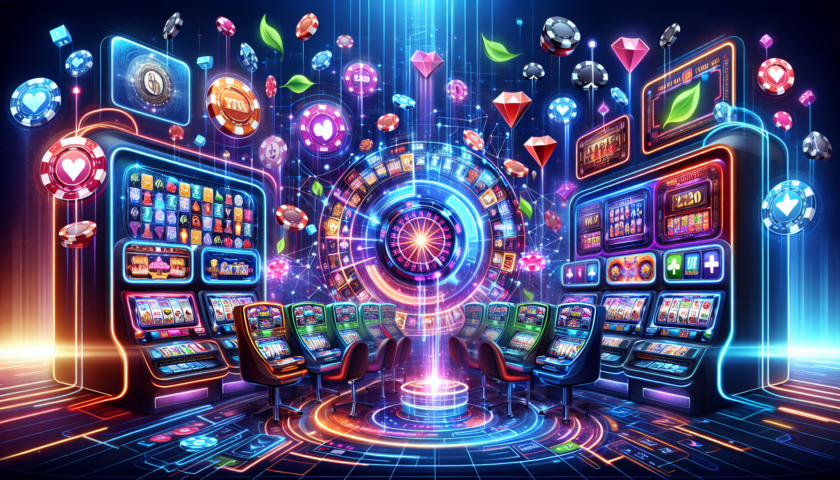
The Evolution of Online Gaming Platforms: A Virtual Universe Beyond Entertainment
Online gaming platforms have evolved into more than just venues for entertainment; they now represent dynamic ecosystems fostering communities, creativity, and even economies. While most discussions focus on gameplay, graphics, or player engagement, the unique topic we’ll explore is how Hoki805 online gaming platforms have transformed into multi-dimensional virtual spaces that reshape social interactions, education, and the global economy.
From Games to Metaverses
Online gaming platforms have grown into expansive metaverses, blending real and virtual worlds. Platforms like Roblox and Fortnite are no longer confined to gaming; they host concerts, educational sessions, and even corporate meetings. Players customize avatars, trade digital assets, and create personalized spaces, fostering a sense of identity and ownership in the virtual world.
For instance, Fortnite’s virtual concerts featuring artists like Travis Scott and Ariana Grande attracted millions of viewers, blurring the line between gaming and live entertainment. These platforms serve as experimental grounds for integrating technology with human experience.
Social Hubs: More Than Just Play
Gaming platforms have redefined how we socialize. Multiplayer games like World of Warcraft, Valorant, and Among Us act as social hubs where players connect across geographical and cultural boundaries. With integrated chat functions and voice communication, these platforms facilitate friendships and teamwork in virtual realms.
Interestingly, gaming platforms often mirror societal norms and cultures, offering players a chance to experience diverse perspectives. The friendships forged within these platforms frequently transcend into the real world, emphasizing the role of online gaming as a modern-day networking tool.
Learning Through Play
Gamification has become a key feature of online gaming platforms, unlocking new possibilities for education. Platforms like Minecraft: Education Edition are being used to teach subjects ranging from mathematics to environmental science. Students collaborate to build structures, solve puzzles, and experiment with coding, all within an engaging and interactive environment.
Such platforms encourage critical thinking, creativity, and problem-solving skills. By making learning fun, they are shaping a new generation that is both tech-savvy and equipped with essential life skills.
The Rise of Virtual Economies
Perhaps the most unique aspect of online gaming platforms is their contribution to virtual economies. Many games now feature in-game currencies, marketplaces, and even blockchain-based economies. Players can buy, sell, and trade digital items, creating livelihoods for many.
Titles like Axie Infinity and Decentraland integrate blockchain technology, enabling players to earn real money through in-game activities. These platforms have popularized the concept of “play-to-earn,” empowering gamers in developing countries to supplement their incomes. The virtual economy of gaming is so robust that it has started to impact real-world economic structures.
Challenges and Future Prospects
While online gaming platforms hold immense potential, they also face challenges. Cybersecurity concerns, data privacy, and the mental health impacts of prolonged gaming sessions require attention. Developers must strive for inclusivity, ensuring accessibility for players from all walks of life.
Looking ahead, advancements in artificial intelligence, augmented reality, and 5G connectivity promise to elevate online gaming platforms even further. These technologies will enhance realism, reduce latency, and create more immersive experiences, potentially making online gaming an integral part of everyday life.